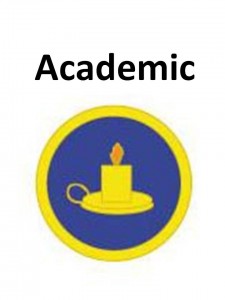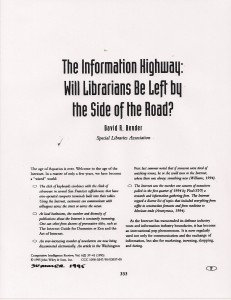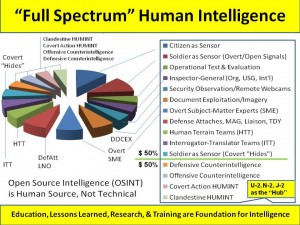
Fortunately, most librarians have gotten used to the fact that the Internet is a tremendous boon to researchers and that free information is a fantastic idea. Sure, we haven't yet reallocated our organizational resources to recognize this fact—our staff time is much more likely to be devoted to acquiring and messing about with purchased information than in making good information from our archives, our labs, or the web more easily available. [Emphasis added.]

We need to separate our value—the way we curate information, champion its availability in the face of intolerance of unpopular ideas and economic disparity, and create conditions for learning how to find and use good information—from the amount of money it takes to acquire stuff on the not-so-open market. We need to be quite clear that good information is good information, no matter how it's funded. And we need to find creative ways to partner with those who add value to information and find sustainable models for the editorial work that can make good academic work better.
Continue reading “Journal: Librarians and The Accessibility Paradox”






